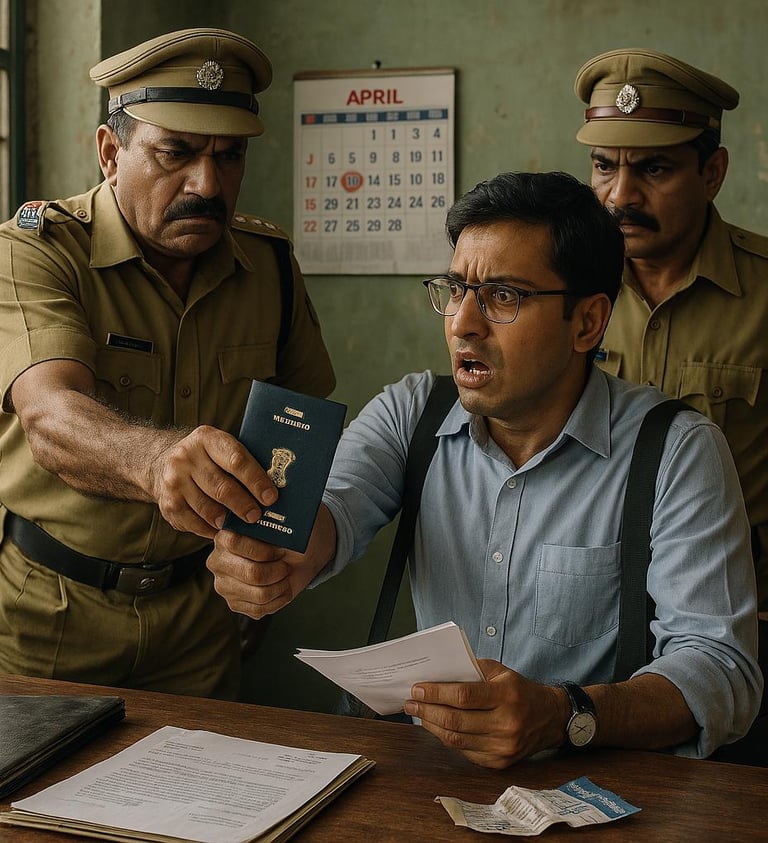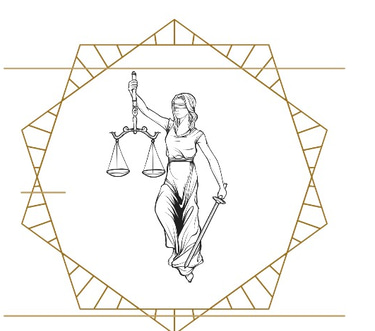Passport Impounding in Criminal & Matrimonial Cases: Legal Guide
Can police impound passports in criminal/matrimonial cases? SC rulings on legality, remedies for wrongful seizure, and authorities' powers explained. Protect your travel rights.
Author - Harshit R. Gupta
7/18/20253 min read


Law on impounding of passport
It is often seen that in money laundering cases and matrimonial disputes, particularly where one party is residing or working in a foreign country, the investigating authorities seize their passport on account of pending criminal proceedings and retain it. This article, based on settled law, discusses the legality of such retention and the appropriate remedies against such action.
Recently, the Hon’ble Supreme Court in the case of Chennupati Kranti Kumar V. State of Andhra Pradesh held that without impounding a passport, the Passport Authority cannot retain a passport handed over by the Police on the grounds of pending criminal proceedings.
Impounding of a passport is done under subsection 3 of section 10 of the Passports Act, 1967. The provision reads as follows:
The passport authority may impound or cause to be impounded or revoke a passport or travel document, -
a) If the passport authority is satisfied that the holder of the passport or travel document is in wrongful possession thereof;
b) If the passport or travel document was obtained by the suppression of material information or on the basis of wrong information provided by the holder of the passport or travel document or any other person on his behalf: Provided that if the holder of such passport obtains another passport, the passport authority shall also impound or cause to be impounded or revoke such other passport.
c) If the passport authority deems it necessary so to do in the interests of the sovereignty and integrity of India, the security of India, friendly relations of India with any foreign country, or in the interests of the general public;
d) If the holder of the passport or travel document has, at any time after the issue of the passport or travel document, been convicted by a court in India for any offence involving moral turpitude and sentenced in respect thereof to imprisonment for not less than two years;
e) If proceedings in respect of an offence alleged to have been committed by the holder of the passport or travel document are pending before a criminal court in India;
f) If any of the conditions of the passport or travel document has been contravened;
g) If the holder of the passport or travel document has failed to comply with a notice under sub-section (1) requiring him to deliver up the same;
If it is brought to the notice of the passport authority that a warrant or summons for the appearance, or a warrant for the arrest, of the holder of the passport or travel document has been issued by a court under any law for the time being in force or if an order prohibiting the departure from India of the holder of the passport or other travel document has been made by any such court and the passport authority is satisfied that a warrant or summons has been so issued or an order has been so made.
Authorities empowered to impound a Passport or Any other travel document
The Passport Authority by virtue of subsection 3 of Section 10 of the Passports Act, 1967.
The Central Passport Organization by virtue of subsection 6 of Section 10 of the Act.
A court that convicts the passport holder can revoke the passport as provided in subsection 7 of Section 10 of the Act
Note 1- Reasons for giving a direction to impound a passport must be recorded by the Authority.
Note 2- Before passing an order to impound a passport, a reasonable opportunity must be given to the passport holder to show cause why such an order should not be passed against him.
Remedies Against Illegal Impounding
Appeal to the Central Passport Organization within a period of 30 days from the date of communication of such order.
In case an order of impounding is passed by the Central Passport Organization, then an appeal lies to the Additional Secretary or Secretary, Ministry of External Affairs, New Delhi.
Since the right to travel abroad is implicit in Article 21 of the Constitution, a writ can also be filed under Article 226 and 32 under specified circumstances.
In the case of Suresh Nanda V. CBI, (2008) 3 SCC 674 Court held that police cannot impound a passport by invoking section 104 of Criminal Procedure Code as Passports Act, 1967 specifically covers the subject of impounding of a passport therefore its provisions will prevail over Cr.P.C.. However, police have power to seize passport under section 102 of Cr.P.C. but no power to impound. The court held that even if he seizes the passport, he is obliged to forward it to the passport authority. Thereafter it is the Passport Authority who will decide whether the passport would be impounded under the discussed provision or not.
Lastly, to conclude investigating authorities such as police officers, CBI, Enforcement of Directorate have power to seize passport but not of impounding it. The final decision regarding impounding rests only with the Passport Authority or Authority to which it is subordinate.
